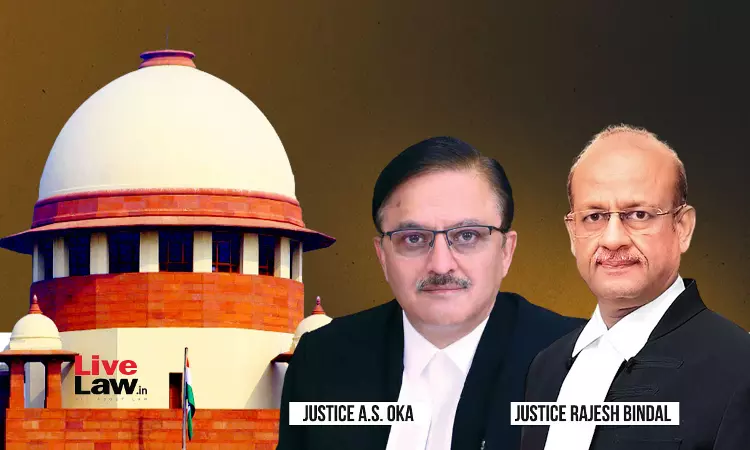Order VII Rule 11 CPC - Inconsistencies In Plaint Averments Not A Sufficient Reason To Reject Plaint : Supreme Court
Ashok KM
17 April 2023 12:25 PM IST

Next Story
17 April 2023 12:25 PM IST
The Supreme Court observed that a plaint cannot be rejected under Order VII Rule 11 CPC merely because there are some inconsistent averments in the plaint. For dealing with an application under Rule 11 of Order VII of CPC, only the averments made in the plaint and the documents produced along with the plaint are required to be seen, the bench of Justices Abhay S Oka and Rajesh Bindal...
